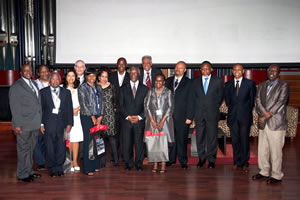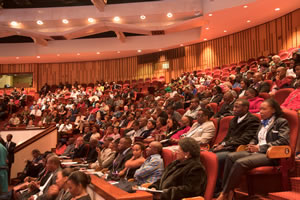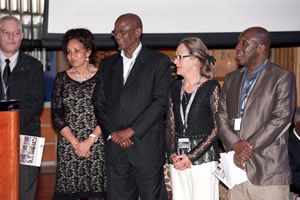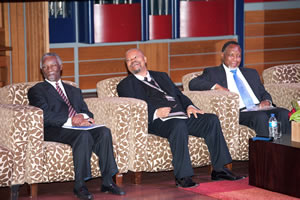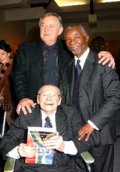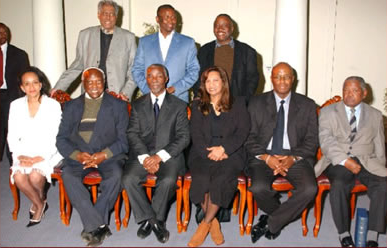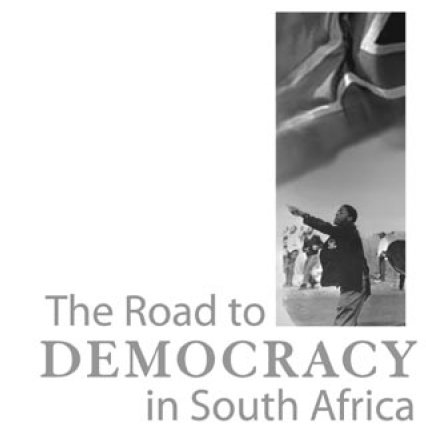 The South
African Democracy Education Trust (SADET)
The South
African Democracy Education Trust (SADET)
The South African Democracy Education Trust (SADET) was established as a project Trust after President Thabo Mbeki indicated his concern about the paucity of historical material on the arduous and complex road to South Africa's peaceful political settlement after decades of violent conflict.
Following discussions with the private sector, core funding for
SADET was provided by MTN and the Nedbank Group. In
2004 the National Lottery Distribution Trust Fund gave
SADET
a grant which is used for funding for additional research.
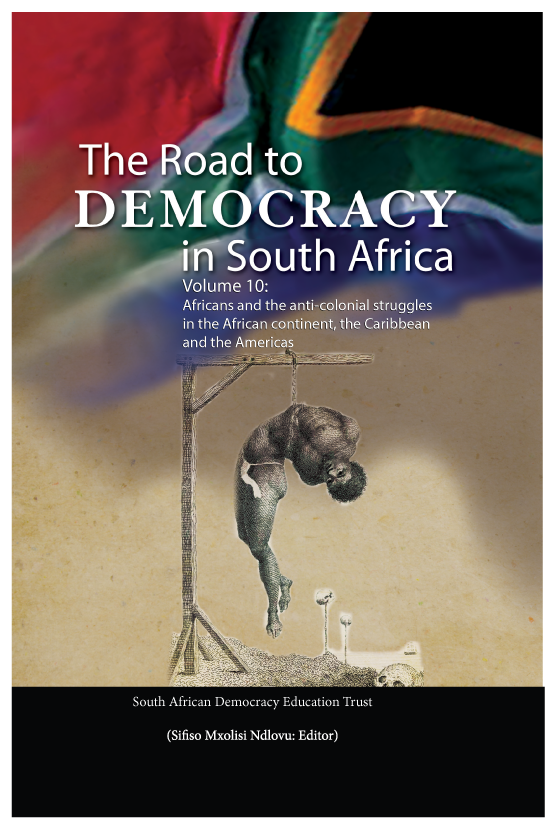
Road to Democracy In South Africa Volume 10 published by Skotaville Publishers is
now available.
SADET is overseen by the Thabo Mbeki Foundation and University of South Africa Board co-chaired by Dr Brigalia Bam and Professor Mandla Makhanya. The project team consist of Dr Sifiso Ndlovu (executive director).
MISSION
SADET's mission is to examine and analyse events leading to the negotiated settlement and democracy in South Africa with a focus on:
-
the events leading to the banning of the liberation movements;
-
the various strategies and tactics adopted in pursuit of the democratic struggle;
-
the events leading to the adoption of the negotiation strategy; and
-
the dynamics underpinning the negotiations process between 1990 and 1994.
The study will result in, among others, the publication of 5 volumes of research covering the successive decades in the run up to the first democratic elections, including an overview volume.
TERMS OF REFERENCE
The Road to Democracy project is a chronological analysis of four decades - 1960-1970, 1970-1980, 1980-1990, 1990-1994, bearing in mind the four areas of focus above and the following themes for each decade:
-
Political context: the political dynamics of each decade, such as the banning of the liberation movements, the formation of insurgency structures, exile and the containment of black resistance in the 1960s.
-
Key organizations and key individuals: the formation, policies and objectives, membership and activities of key organizations during each decade, and the role of key historical, as well as less well-known but significant, actors.
-
Strategy and tactics: the evolution of the strategy and tactics of key organizations, including debates around changing strategies and the impact of adopted strategies and tactics on revolutionary developments.
-
Regime response: the response of the apartheid regime to the activities of the liberation movements, including changes in the nature of the apartheid state, the evolution of policies to contain black resistance, and repression and counter-revolutionary strategy.
-
International context: the role of the international community in the liberation of South Africa and international events and processes that impacted on the liberation struggle.
-
Regional context: regional events and processes that had an impact on the liberation struggle and the decision to adopt a negotiation strategy and studies of provincial and local involvement in the liberation struggle.
-
Outcome: the major outcomes at the end of each decade.
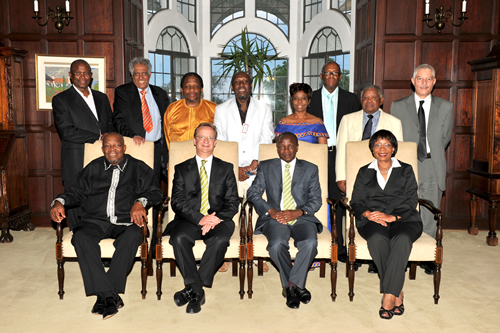
Sadet Board of Trustees and Representatives of our
Sponsors
Back row: Mr Seth Phalatse,
Dr Essop Pahad (chairperson),
Dr Matlotleng Matlou,
Professor Sifiso Ndlovu (Sadet Executive Director),
Ms Eunice Maluleke (MTN Foundation),
Adv Selby Baqwa SC(Nedbank),
Mr Isaac Makopo,
Dr Gregory Houston
Front Row:
Prof Bernard Magubane,
Mr Mike Brown (Nedbank),
Minister Collins Chabane,
Ms Nozipho January-Bardill (MTN)
The following three Board Members were not present at the Launch when the photograph was
taken: Dr Yvonne Muthien, Dr Vincent Maphai, Minister Lindiwe Sisulu
(Photograph by GCIS)
THE SERVICES SADET PROVIDES AND BENEFITS TO THE COMMUNITY
SADET is a research organisation and does not provide direct services to any institution or body of people. However, as a heritage project, the "Road to Democracy in South Africa" project provides the following benefits:
-
To the South African population as a whole: by providing a major study of South Africa's political history between 1960 and 1994 and thereby revealing the "hidden" aspects of this history; enabling key individuals, as well as ordinary citizens, to tell the story of their role in the liberation struggle; and by placing these "stories" in the public domain in the form of SADET's academic volumes, school and/or popular texts, edited volumes of the interviews conducted by the SADET team, a television documentary series and, CD-Roms for distribution to schools.
-
To certain heritage organisations such as the Freedom Park, the National Archives of South Africa, the National Heritage Council, the National Orders, etc., by acting as a research resource centre for institutions and structures.
-
To future generations and scholars by placing the archival material collected by SADET and its collection of oral histories at the National Archives of South Africa and the Freedom Park once the project has been completed.
-
To young and emerging scholars: by providing the opportunity to participate in such a major project as contributors to the volumes or as research assistants carrying out archival research and interviews; and by providing financial assistance to enable students participating in the project to continue with their studies.
-
To the international community: that is, anyone that is interested in South Africa's political history, and the life experiences of ordinary South Africans.
Publications:
-
Road to Democracy in South Africa, Volume 3, International Solidarity (Part 1, 2 and 3 )
-
The Road to Democracy inSouth Africa, Volume 4, 1980-1990 (Part 1, 2 and 3)
-
The Road to Democracy in South Africa, Volume 5, African Solidarity (Part 1 and 2)
-
The Road to Democracy in South Africa, Volume 6, 1990-1996 (Part 1 and 2)
- The Road to Democracy: South Africans telling their stories, Volume 1, 1950-1970
- The Road to Democracy in South Africa, Volume 7,
Soweto Uprisings
- The Road to Democracy in South Africa, Volume 8
Part 1
- The Road to Democracy in South Africa, Volume 9
New Release:
- The Road to Democracy in South Africa, Volume 10
Published by Skotaville Publishers.
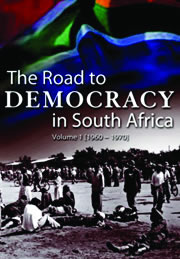
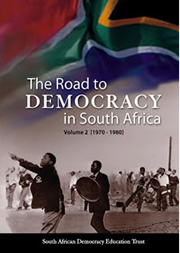
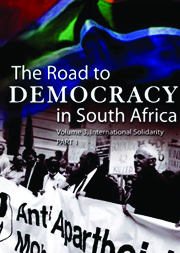
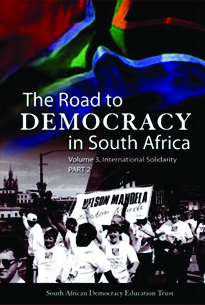
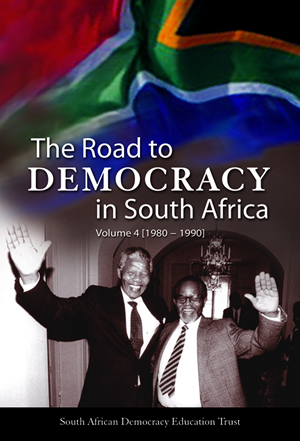
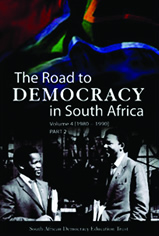
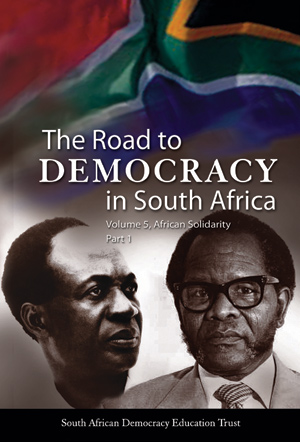
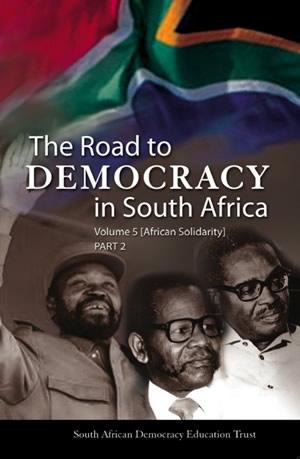
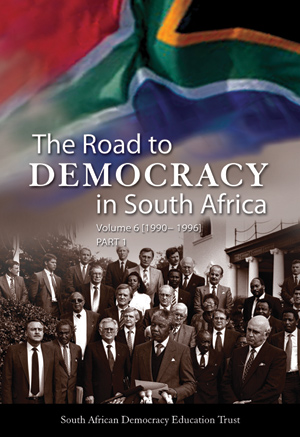
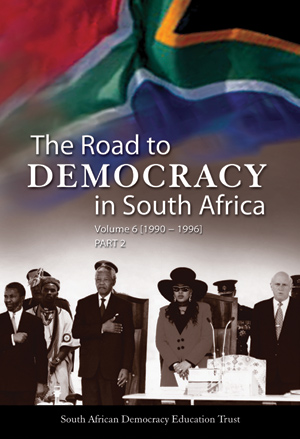
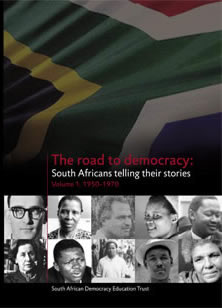
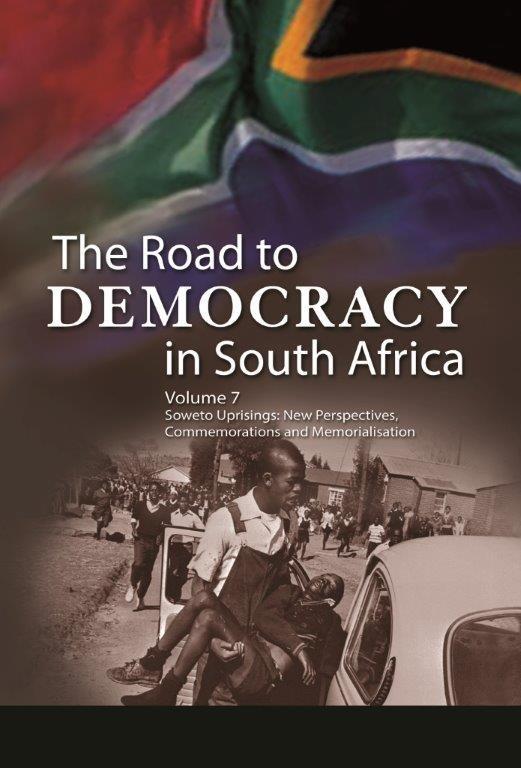
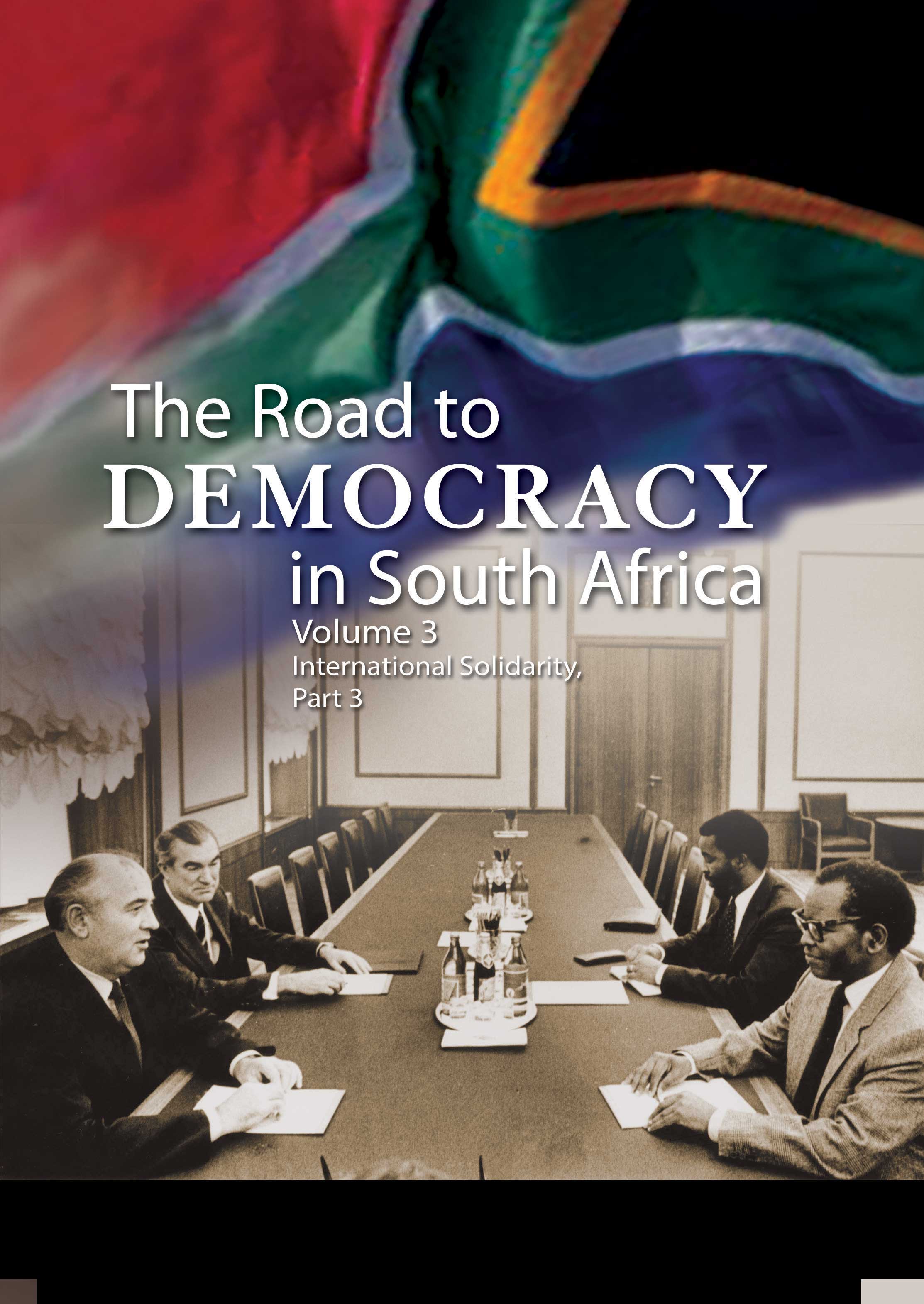
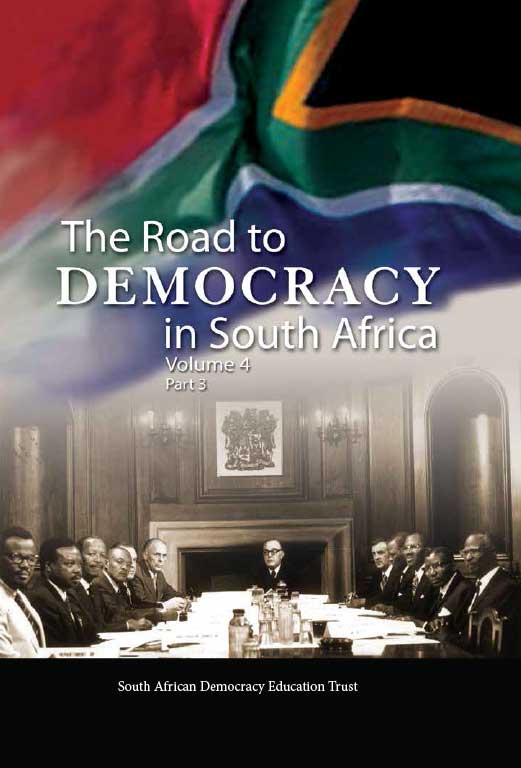
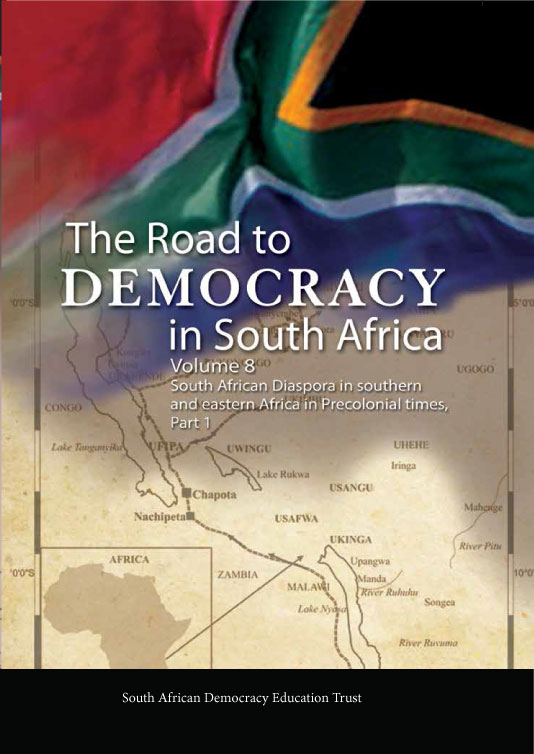
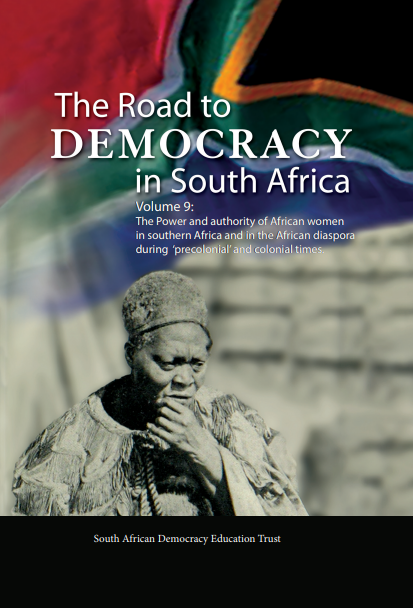

Historical Background | Road to Democracy | Sponsers | Related Links | Contact | Interviews | Gallery | History
© 2015 SADET - All Rights Reserved


